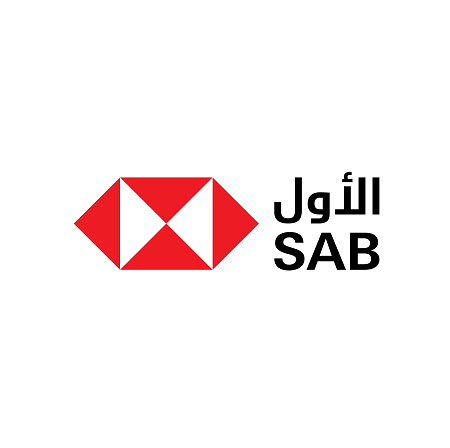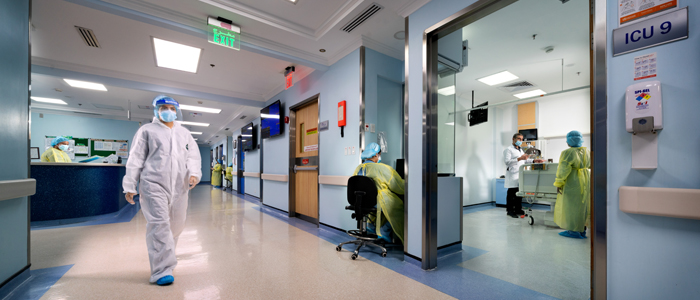-
Wealth Management
-
-
Low Limit Credit Cards
-
Debit Cards
-
Prepaid Card
-
ICSAB+
-
Finance
-
Help & Support
-
-
Help & Support
-
Cards
-
-
-
Tools & Resources
-
Ways to Bank
-
Help & Support
-
ESG at SAB
-
Security
-


Frequently Asked Questions
Have questions about SAB banking services? Let us help you with these frequently asked questions.
FAQSCustomer Service
Our friendly Customer Support team are on hand to help with any queries you have. We're here to help!
Contact UsQuick Links

PHARMA DEALS AND HEALTH CLUSTERS BOOST SAUDI HEALTHCARE

In a strategic move aimed at bolstering its pharmaceutical industry, the Saudi Authority for Industrial Cities and Technology Zones (Modon) last year inked an agreement with Eva Pharma, a leading pharmaceutical company in the Middle East and Africa.
The partnership sets the stage for the establishment of an expansive industrial complex dedicated to pharmaceutical manufacturing and research. With an emphasis on enhancing pharmaceutical security, the initiative underscores Saudi Arabia's ambition to solidify its position as a key industrial power and a crucial logistics hub for vaccines and medicines across the region.
The agreement designates a substantial 50,000 square metres of industrial land in Sudair city for the development of this complex. The facility is envisioned to produce more than 150 pharmaceutical products, with an annual production capacity of 990 million units. Furthermore, the collaboration aims to integrate cutting-edge technologies through the Research and Development Center within the complex, fostering swift responsiveness to production demands in collaboration with local universities and hospitals.
SECURING LOCAL SUPPLY CHAIN
Modon's vision is to elevate the value of local content and bolster domestically manufactured products through collaboration with public and private sectors.
Meanwhile, the Local Content and Government Procurement Authority (LCGPA) entered into four agreements aimed at building industry localisation and knowledge transfer. These include deals with Saudi-based Jamjoom Pharma and American company MSD for the production of sitagliptin phosphate and ticagrelor, medications that are crucial for addressing prevalent health issues. Highlighting a sustainable partnership between the government and private sectors, LCGPA CEO Abdulrahman Al-Samari emphasised the authority's commitment to expand the list of localised products in alignment with international standards.
The efforts underscore the financial impact, with pharmaceutical localisation initiatives contributing over SAR 250 million in a decade. Al-Samari reiterated the authority's dedication to nurture new industries, fortify supply chains, and achieve self-suffciency within the kingdom.
Furthermore, a groundbreaking agreement was signed at the Ministry of Industry and Mineral Resources between Dammam Pharma, a subsidiary of Spimaco, and MSD, aiming to manufacture Type 2 diabetes medication locally. It marks a significant milestone, as it not only addresses domestic demand, but also positions the kingdom as a potential exporter to regional markets.
Around 17.7% of Saudi adults suffer from diabetes, placing the country second in the Middle East and seventh in the world in terms of prevalence of diabetes, according to the World Health Organization.
Abdallah Nabil, General Manager of MSD in Saudi, believes the potential of the kingdom's pharmaceutical market, projected to reach SAR 40 billion by 2030, and underscores the agreement's contribution to technology transfer and job creation.
This is all part of the Ministry of Health’s effort to shift focus away from its traditional role as a healthcare provider, and become solely a regulator of healthcare in the country.
“The National Transformation Program (NTP) has set a target to increase the private sector’s contribution to healthcare spending from 25% to 35%.
Consequently, new opportunities are being created for investors to capture a lucrative share of the Saudi healthcare market,” according to InvestSaudi.
HEALTH CLUSTERS
Earlier in the year, the Ministry of Health completed the first phase of its transformation, which was marked by the launch of health clusters in various regions in the kingdom.
The initiative is a key part of the Health Sector Transformation Program aimed at developing the healthcare system and enhancing the quality of care and services provided, in line with Saudi Vision 2030.
The transformation involves restructuring the country’s health sector, enhancing its capabilities and effectiveness, and contributing to increased satisfaction with the health services provided to beneficiaries, as well as improving their experience in accessing healthcare services.
It follows the establishment of the Saudi Health Holding Company, which will continue to perform healthcare-related operations through the health clusters across various regions, while the Ministry of Health will regulate and oversee both public and private healthcare institutions.
Each cluster will include primary care centres, public hospitals, and specialised services within its scope, o ering beneficiaries integrated administrative organisation to ensure service flexibility, promptness, and satisfaction.
The clusters will also be responsible for the health of the population in their respective catchment area through continuous monitoring, such as conducting early periodic examinations for all and collaborating with other entities to create a healthier community environment.
The ministry launched the clusters to facilitate access to healthcare services and ease the transition between di erent types of care. The clusters are focused on implementing transformative programmes aimed at enhancing community health and prevention.
These programmes include community health promotion, prevention and early detection of diseases, primary healthcare development such as the "Doctor for Every Family" programme and chronic disease care, development of critical care services for rapid response to cardiac and brain strokes and injuries, and expansion of digital health and virtual medical care services.
The clusters will ensure a new care model that converts all hospitals and primary care centres into health clusters across the kingdom,with each cluster catering to approximately one million individuals.
Your are now leaving this site
Your are now leaving this site
You are about to leave this site. You are being redirected to an external site. Would you like to leave this site?
© SAB, Saudi Arabia. All Rights Reserved, 2025
Saudi Awwal Bank, a listed joint stock company, incorporated in the Kingdom of Saudi Arabia, with paid in capital of SAR 20,547,945,220, commercial registration certificate 1010025779, unified number 7000018668, Mailing Address: P.O. Box 9084, Riyadh 11413. National Address: 7383 King Fahad Branch Rd, 2338 Al Yasmeen Dist., 13325 Riyadh, Kingdom of Saudi Arabia, Tel. +966 11 4050677, www.sab.com, licensed pursuant to the Council of Ministers Resolution No. 198 dated 06/02/1398H and Royal Decree No. M/4 dated 12/08/1398H, and regulated and supervised by the Saudi Central Bank.